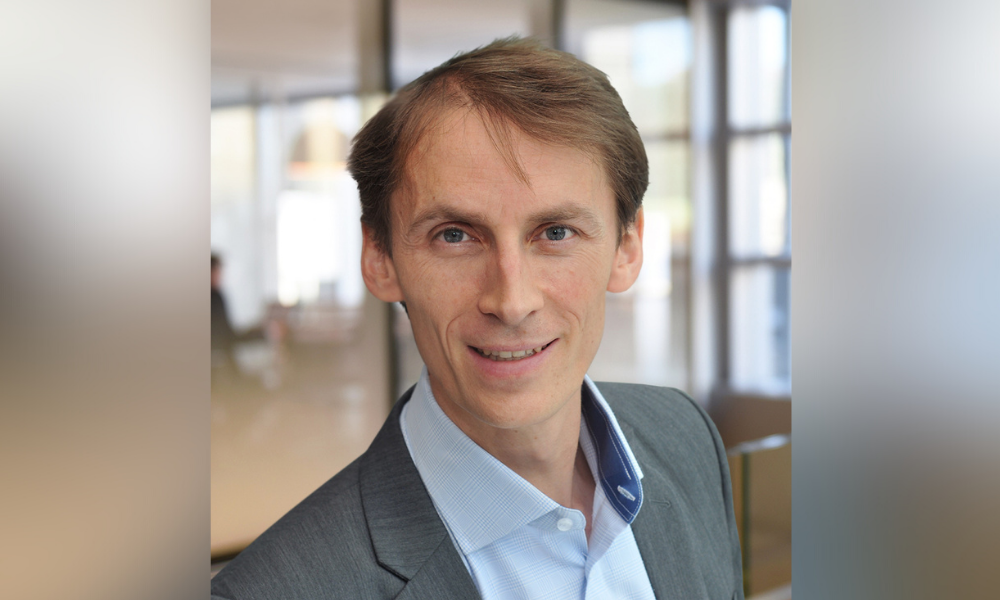Desjardins offers advisors a playbook to explain how you practice what you preach

Desjardins recently won a Greenest Employer award, and one of its directors is encouraging advisors to align their practices with their product to capture growing client interest in this environmental, social, and governance (ESG) area.
“Responsible investment product categories are among the fastest, highest growth categories within our portfolio. So, they are definitely attracting more and more clients, and people are putting more of their savings or investments into those categories,” Gildas Poissonnier, Desjardins’ director of sustainability and responsible finance, told Wealth Professional. He added that the category is actually attracting more clients rather than just seeing them shift their resources.
“There’s a greater opportunity for wealth professionals to embed this more, and I think that should help them be more successful because there’s increasing demand from a broader range of clients.”
Poissonnier said the key is to embrace this area – not only for training, but how it impacts their operations – so clients can see that you’re aligning with the principles.
Desjardins has set several targets. It wants to work with its clients to be carbon net zero by 2040. It’s particularly important in its operations, supply chain, and energy, transportation and real estate investments. By 2025, it also wants to reduce its operations carbon footprint for transportation paper consumption, and building energy by 41% from its 2019 baseline. Desjardins has also installed 302 of the 500 electric vehicle charging stations it wants to have by 2025, and more than 90% of those are accessible to the public.
More than 10,000 of its 52,000 employees have also had mandatory sustainability training, and more than 861 advisors have had responsible investment training, and more are accessing the company’s toolbox, which has additional information.
“Making sure that the basics are well understood from our advisor base is really key because we’ve been seeing an increase in the demand for responsible investment (RI). I think that shows there’s traction in the market,” said Poissonnier. He noted that Desjardins has also provided more than 800 independent advisors from several dozen wealth management firms with RI training.
Given clients’ increasing interest in ESGs, Poissonnier urged other advisors to learn more about ESG options for their portfolio construction, so they can talk to clients about various areas – such as gender diversity or climate change.
“It’s a combination of understanding the basics of what you actually monitor when you do responsible investment strategy on top of financial return and financial performance, and also being able to explain that all the different strategies are not completely the same,” he said.
“Clients are getting more sophisticated, so they want to know what the actual impact is. Training will help you know and better explain the different strategies to clients to help them make better and more informed choices from those different strategies.”
Poissonnier noted that, regardless of their size, advisors can follow in Desjardins’ footsteps by looking at their own staff’s travel habits and paper consumption as well as their office’s greenhouse emissions. There are online calculators to help them do that.
“It doesn’t have to be very complex to get started,” he said. “It’s also a great way to engage your employees and start the conversation.”
Advisors can also hold lunch-and-learns to launch the discussions with employees, and also start addressing one area, such as paper consumption, before moving to another, such as transportation.
“What’s important is to get started and get the conversation with the employees going, and then progressively add to your capacity to monitor and track your environmental impacts,” said Poissonnier. “That’s really where you get the accountability and integrity of your approach because if you promote responsible investments in your portfolio for your clients, and you don’t put what you preach into practice in your own activities, clients can be quite sceptical, or cynical, that you’re just promoting this because you have a business opportunity where you think you can make more money. So, if you don’t do anything in your own operations, then it can be a risk.
“You don’t need to be perfect. Nobody’s perfect. But, at least, demonstrate that you are working through it in your own operation and you are making good progress. Otherwise, if you wait to be perfect, you can wait a long time. But, at least show that you’re as serious about it in your operation as you are in promoting your products.”



